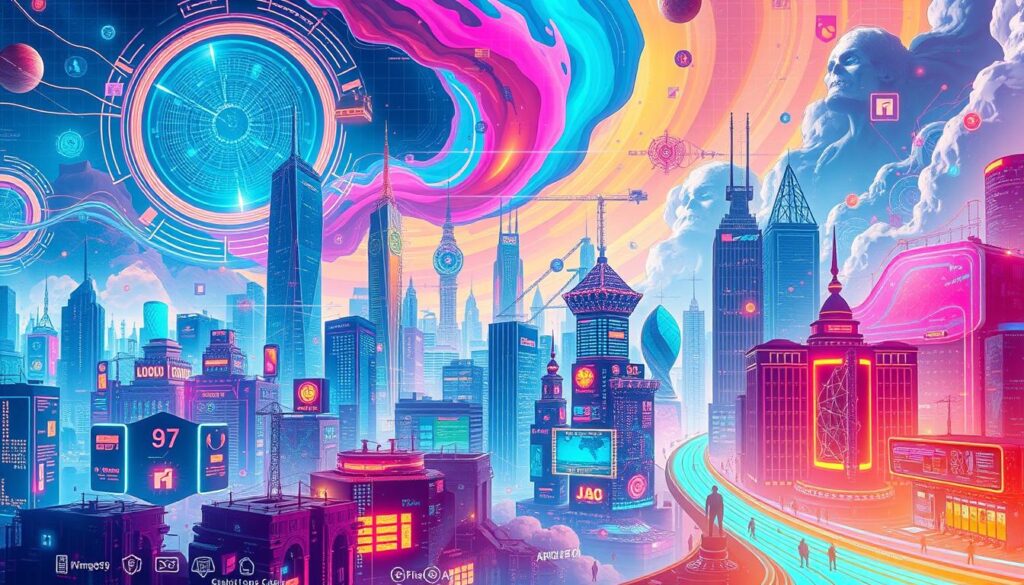Technology is evolving at an astonishing pace, and one of the most exciting advancements is Generative AI. From transforming industries to enhancing creativity, it is reshaping how we work, communicate, and innovate. In this article, I’ll explore why Generative AI is so important, how it is impacting different sectors, and what the future holds.
What is Generative AI?
Generative AI refers to artificial intelligence models that can create new content, such as text, images, music, and even code. Unlike traditional AI, which relies on pre-programmed rules, generative AI learns from massive amounts of data and generates unique outputs.
Some well-known examples include:
- Chatbots: They generate human-like conversations.
- Image Generators: Tools like Midjourney and DALL·E create stunning visuals.
- Code Assistants: AI-powered tools help developers write and debug code.
- Music Composition: AI creates original melodies and soundtracks.
How Generative AI is Changing Industries
Generative AI is making waves across multiple industries. Here’s a closer look at its impact:
1. Healthcare
Generative AI is revolutionizing healthcare by enhancing diagnostics and drug discovery.
| Application | Benefits |
|---|---|
| Medical Imaging | AI assists in detecting diseases faster. |
| Drug Discovery | AI accelerates the process of finding new medicines. |
| Personalized Treatment | AI tailors treatment plans based on patient data. |
Example: AI-generated 3D models help surgeons prepare for complex procedures, increasing success rates.
2. Education
Education is becoming more interactive and personalized with AI-powered tools.
- Automated tutors help students understand complex topics.
- AI-generated quizzes make learning more engaging.
- Language models assist in writing and research.
Quote: “With AI, learning is no longer one-size-fits-all but tailored to each student’s needs.”
3. Content Creation
Generative AI is transforming the way we produce content.
| Task | AI Benefit |
|---|---|
| Writing | AI drafts articles, scripts, and marketing copy. |
| Designing | AI generates high-quality graphics and layouts. |
| Video Editing | AI automates editing, saving time for creators. |
Example: AI-generated scripts help filmmakers visualize their stories before production.
4. Business and Automation
Businesses are leveraging AI for automation and efficiency.
- AI chatbots handle customer service 24/7.
- AI-driven analytics provide insights for better decision-making.
- AI-generated reports save time on manual documentation.
Key Takeaway: AI is helping businesses streamline operations, cut costs, and improve productivity.
The Ethical Challenges of Generative AI
With great power comes great responsibility. While AI is beneficial, it also raises concerns:
- Data Bias – AI can reflect societal biases if not properly trained.
- Misinformation – AI-generated content can spread false information.
- Job Displacement – AI automation may replace certain jobs.
Solution: Companies must develop AI responsibly, ensuring fairness, transparency, and ethical use.
Future of Generative AI
Generative AI is just getting started. Here’s what I see happening next:
- More Human-Like AI – AI will become even more natural in conversations.
- Better Creativity Tools – AI will assist musicians, writers, and artists in new ways.
- AI in Daily Life – From smart homes to personalized AI assistants, integration will grow.
Quote: “The future of AI isn’t about replacing humans—it’s about enhancing what we do best.”
Key Takeaways
✔ Generative AI is transforming industries like healthcare, education, and business.
✔ AI tools improve creativity, automation, and efficiency.
✔ Ethical considerations must be addressed to ensure responsible AI use.
✔ The future of AI holds endless possibilities for innovation and collaboration.
FAQ (Frequently Asked Questions)
Q1: What makes Generative AI different from traditional AI?
Traditional AI follows predefined rules, while Generative AI creates new content using deep learning.
Q2: Will AI replace human jobs?
AI may automate certain tasks, but it also creates new job opportunities in AI development and ethics.
Q3: Can AI-generated content be trusted?
AI content needs human review to ensure accuracy and avoid misinformation.
Q4: How can businesses use Generative AI?
Businesses can use AI for marketing, automation, customer service, and data analysis.
Q5: Is Generative AI safe?
When used responsibly, AI is a powerful tool. Ethical AI development is key to its safe adoption.
Conclusion
Generative AI is shaping the future of technology in remarkable ways. From revolutionizing industries to enhancing creativity, it is a tool that holds immense potential. However, responsible development and ethical considerations are crucial. As we move forward, embracing AI while maintaining human oversight will lead to a future where technology empowers us, not replaces us.

